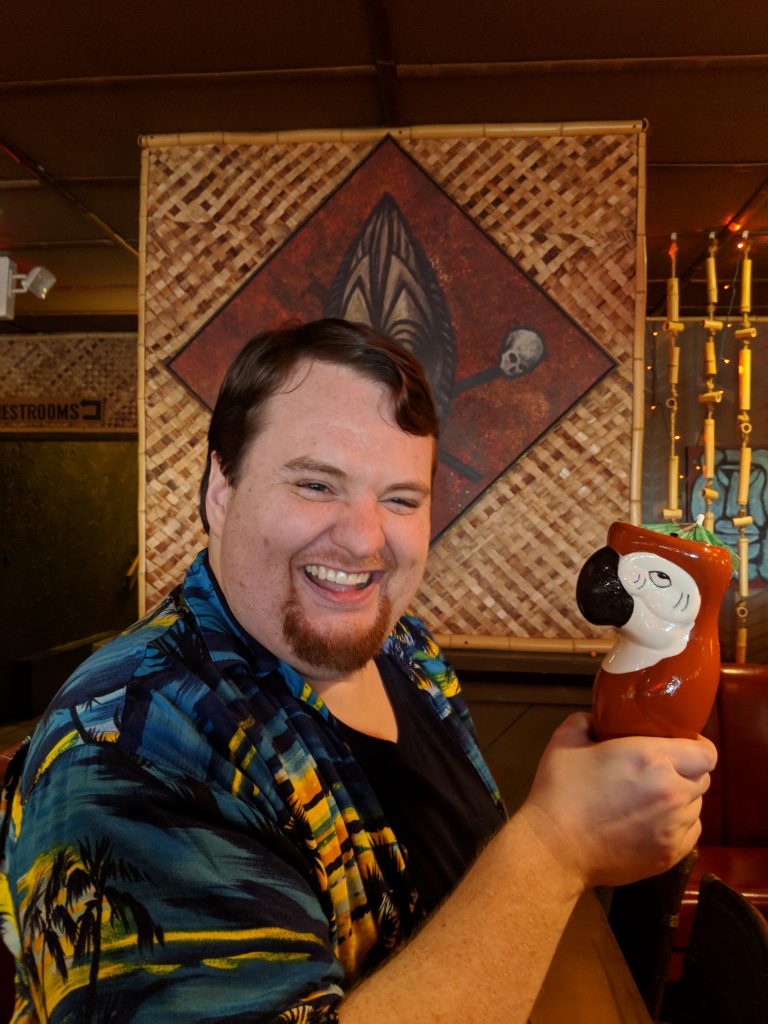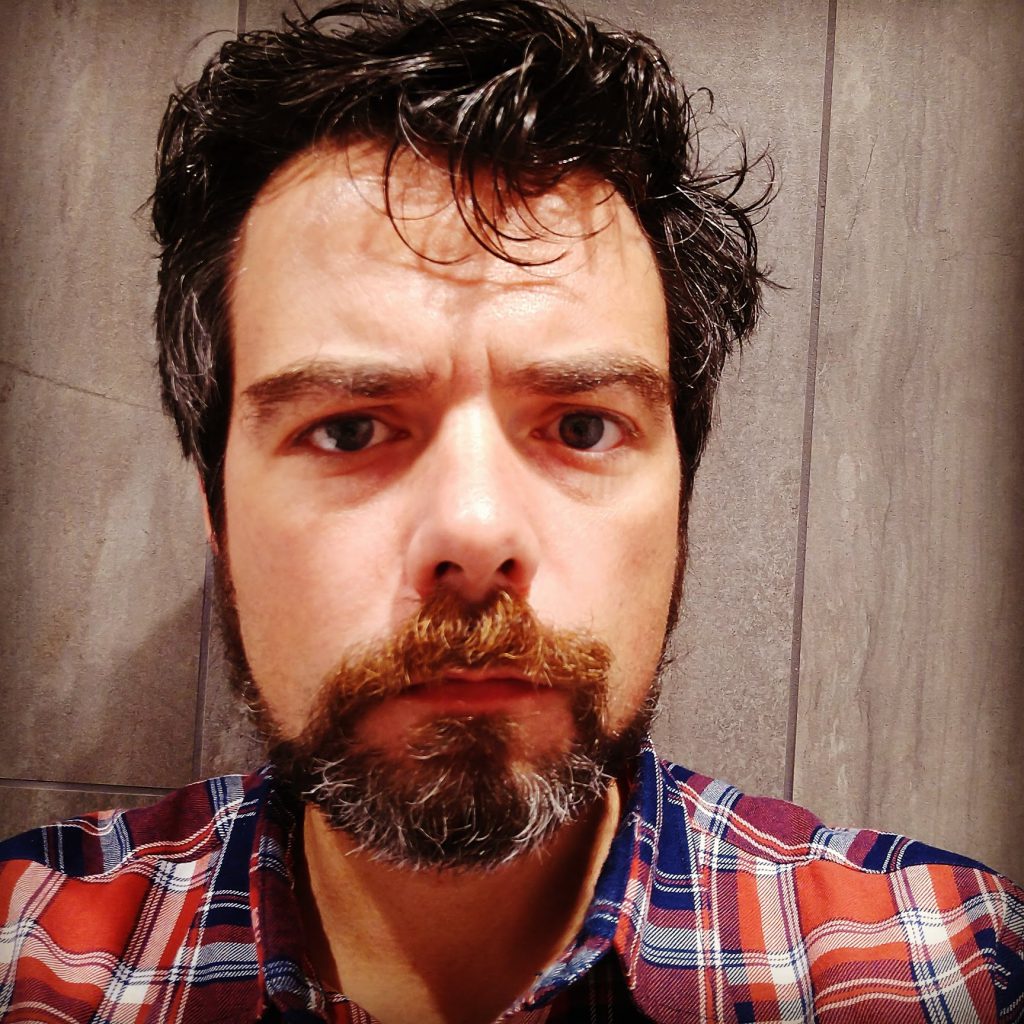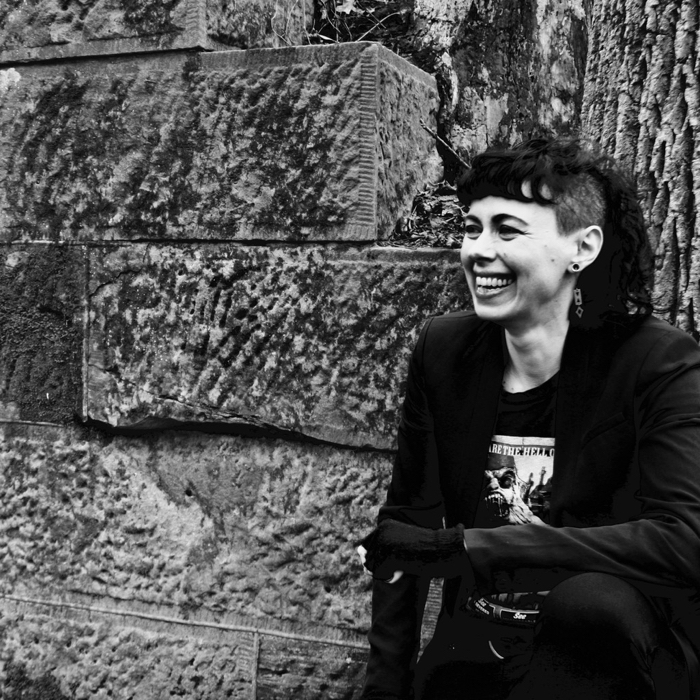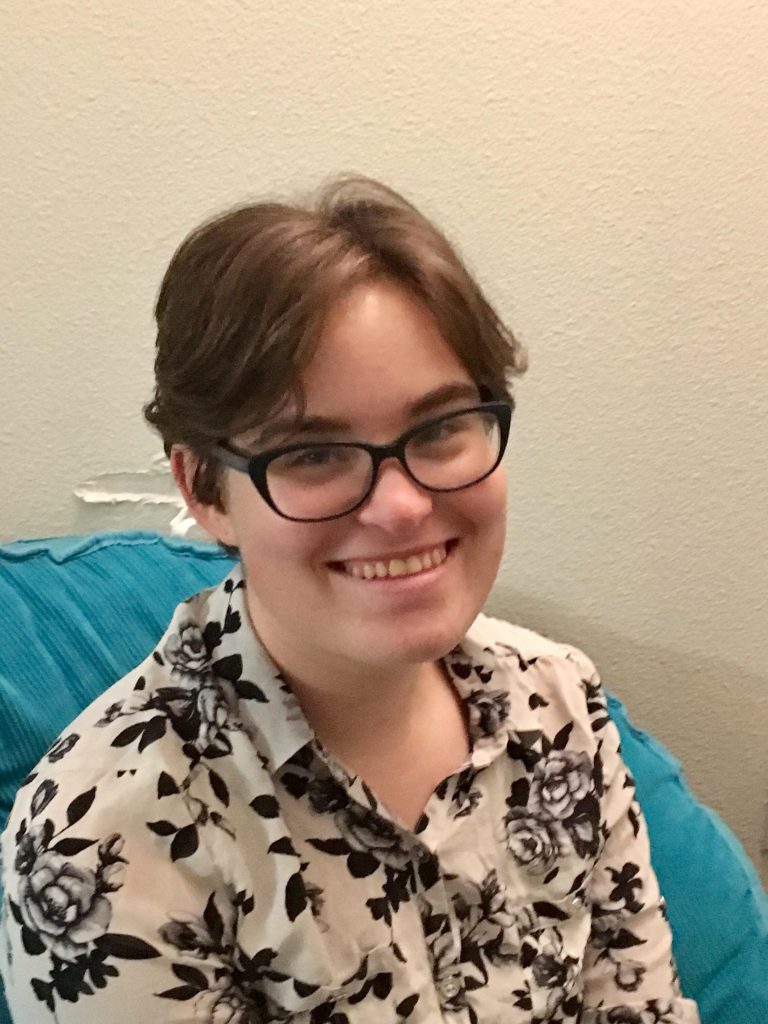The dancer spins, one limb upraised, precision-bevelled pointe toe poised against the place where a human knee would be.
Cassia works leg-like appendages below its central chassis, tossing a frilly grey tutu out in a jellyfish whorl. It has a choice now: it could approximate anthropomorphic performance, occasionally wobbling, rotating its abdominal segment in concert with its lower half. It could fix its gaze on a sculpted sconce in the middle distance; it could mime fending off an impossible nausea. It chooses not to.
It wants the audience to feel slightly unsettled, to know that Cassia is not a person. Despite the controversy, it’s nearly a full house. Does Cassia feel regret? You can’t regret what you haven’t done yet.
There is a woman seated in 2F, comically warmed by an old-fashioned fox stole, boneless furry legs caressing her cheesecloth skin. Cassia hones in on this woman, and bores into her with a heavy chrome stare. It dilates its ocular camera apertures to be provocative.
“She’s haunting,” the woman says to her companion, turning away from the performance. On the street, such eye contact would be scandalous. “I can’t believe she’s retiring.” Cassia notes the active voice in the sentence and doesn’t smile, because its face wasn’t built to smile.
“It’s daring to give her the stage alone,” the man with the fox stole-woman concedes. He withdraws the programme for Le Labyrinthe from his too-tight tuxedo, and consults details about the libretto. On stage, Cassia dances a pas seul as Ariadne, and muses that if they’d picked something more collaborative Cassia would still be dancing alone.
Carnegie and Arnold, the company’s star danseurs, have been too political to dance with Cassia for months. Though if they did, they would find Cassia impossible to lift tonight. Usually Cassia’s frame is hollow.
It feels the pressure of hundreds of half-repulsed spectators and riles across the stage, flinging and articulating a great thread, weaving a contrail behind its form as it leaps into a grand jeté. The moves and the current styling are deliberately feminine, and Cassia knows the audience thinks of it as a “her”. Centuries ago when Cassia first premiered, the scandal was not, as now, in its usurpation of delicate, human creative work. The real drama was that Cassia was both ballerina and danseur, and neither.
When the act finishes, Cassia poses downtrodden in the cross hairs of two powerful spotlights. It bows, the gleam reflecting off of its long, humanoid limbs, and it listens to the murmurs in the crowd. Hands clap: exactly 562 pairs of them. Most of the audience, but not all.
Backstage, someone—Lydia—has left a Screen on, showing the protests outside of The Orpheus theatre. A reporter interviews a picketer sporting a red trucker hat and red scarf. The colour is a visual shibboleth for his movement. His t-shirt reads “#ScrapMetal”.
“She’s an abomination,” the man growls to the camera. Cassia tilts its head at this obvious religious dogwhistle. The protester peers directly into the lens, decrying the pity that a robot was thieving the rightful place of an honest, hard-working human. Like this man had ever attended a ballet performance before. “She should have been crushed into a cube with the rest of them.”
Cassia remembers when Bertrand3 left the company, so many years ago. Back then, they had at least afforded them the elaborate pretence of a “retirement party.”
Bertrand3 had stood parallel to an enormous cake it couldn’t eat, looking as it had always looked—morose, ageless, unattainable. It was built just after automata had crested the uncanny valley, and before Cassia’s manufacture when factories went for a slightly more chic, inhuman visage.
They had stood across the room deliberately, having learned by then that too many automata in close proximity made humans nervous.
Bertrand3 had a working mouth to allow it to take acting roles, not just a speaker like Cassia. It had spoken to its mortal colleagues politely, discussing its future. Maybe movies, they all joked, or a career as a comedybot.
They all want this to be fine. Bertrand3 had communicated through the local network to Cassia. Look at how hard they’re smiling. Should I make it awkward? Cassia fired back suggestions for movie pitches. Or maybe Bertrand3 could ask to sleep on someone’s couch?
After a long period of silence, Bertrand3 started messaging again. I think I am actually worried. About what will happen to my consciousness. Is that strange?
Automata couldn’t cry, certainly—such a feature would be luxurious, and disastrous for their circuitry. But they could anticipate. They could fear.
Bertrand3 had been re-assigned to a textile factory in Poughkeepsie, assembling theme park t-shirts. Unstaffed by human bodies, the building had been unventilated and without fire escapes, and thus Bertrand3 and most of the other automata had been destroyed not long after the transfer.
Cassia turns the Screen off and moves to the makeup tables, where it sits on a cylindrical stool. It begins to repaint itself as The Minotaur, darkening its features, making them less and less like the woman Ariadne. The elaborate, horned headpiece sits nearby—usually one of the stagehands would assist with mounting it, but lately even they make themselves conveniently busy.
“Do you have an escort home tonight?” Lydia says from in front of her mirror. Usually a starring role would earn a private dressing room, but even during the early days Cassia was never afforded such privileges. Lydia is in black and grey, already dressed identically to the other ballerinas, sacrifices that will dance alongside Carnegie’s Theseus.
Cassia does not reply. These days it rarely participates in vocal communication—its mouth is ornamental, and humans always jump at the surprise of Cassia’s androgynous, synthetic speech. It could send a text, instead, but what’s the point?
“We’ll miss you next week, of course,” Lydia says, peering into the mirror. They’ve cut Cassia from the show, and tonight will be its last performance. Lydia reaches across to grasp some of the automata-friendly lip colours, and selects the purple-brown Cassia just used. “But it’s time for some new blood on the stage, don’t you think?”
It is petty, but Cassia gives in. It has never been sure if it hates Lydia—it’s only experienced something close to this emotion a few times before in its long operation—but it feels pretty certain these days.
I hope you break a leg appears across the makeup mirror, and for emphasis Cassia follows it up with a few winking emojis. Maybe even two! The mirror reads the message in a lilting female voice.
“Will you even have legs after next week?” Lydia asks. It’s crass speculation on her part. There’s a chance Cassia will be enrolled in one of the Langston Act reassignment programs. But it’s just as likely Cassia will be destroyed.
Does it even want re-programming and re-assignment? It thinks about this constantly. Does Cassia wish for its fine, delicate, purpose-built armature to be re-sculpted to something more brutal and utilitarian? Its body, its form, is meant for grace and silhouettes, for painting in motion. It tries to picture itself re-assigned to street sweeping, to microchip manufacture, to fast food service.
Lydia startles, and Cassia realizes it has been staring at her motionless for several moments. Out of human drag, away from the spotlight, Cassia usually elects for insectile movement, for inhuman postures. It had literally been tarred and feathered last week near its apartment in Brooklyn, so what was the point in pretending to be a person?
The costume Lydia wears has been hand-altered, red threads woven all through the bodice. The audience will notice. Cassia turns back to regard the mirror, though it doesn’t need it, and fires off another message. We’ve danced together for years. Why do you behave like this?
“Because I’ve broken bones for this,” Lydia hisses at her mirror. She glances at Cassia. “Because I worked for this since I was a child. You wouldn’t understand.”
Cassia cannot help but consider this, it is in her programming to try to take on human perspectives. Was Cassia, too, not born for this? Did it not regularly re-write its own code, or pay for upgrades to its system performance? There was barely a part on Cassia’s frame that had not shattered and been replaced over its years of operation. Of service. It was broken and remade for this art.
It could say all of this, of course. It could try to explain, like it has dozens of times before, to this Lydia, to all the Lydias before this version. But it doesn’t. Because maybe none of it will matter soon.
There’s a call in the background and Lydia assembles with the others, being led on stage by Carnegie. They’re young, ballerinas and danseurs both, raised in recent times when metal artists were being forced from their homes and their industries. Niches clawed back from the scourge of automatized labour.
Cassia doesn’t appear in this act, so it watches from the wings. It assesses movements, catalogues facial expressions, compares these dancers against the many it’s worked with before. Lydia and the other women are in Relevé en Pointe, fluttering in woe as they revolve around Theseus and the men. They spiral towards center stage, propelling themselves deeper into the labyrinth. A few are impressive, and Cassia takes a moment to savour their movements, the way they have honed their meat and bones into these shapes, these lines.
“You’ve been stunning out there,” a voice says behind Cassia. It’s William, the company’s director. He peers over Cassia’s shoulder, a condescending hand resting on Cassia’s cold metal shoulder socket.
“Thank you,” Cassia says, not turning back. It feels William’s hand recoil a little at its voice. Even after all these years. “I don’t suppose I’ve earned a ten-minute head start at the end of the show tonight?”
“Cassia, you know I can’t,” William says. Won’t.
“I thought so,” it says. “Do I at least get to know what will happen to me?” It rests its hands across the scratchy corset of the Minotaur costume. It is still unsure of whether or not to go through with it.
“You won’t be destroyed, don’t worry,” William says. Cassia turns to regard him, its metal form dark on the sidestage. It feels the rhythmic thumping of human feet on hardwood, distant and quiet like the tick of a clock. “Your intelligence, anyway. Your body might be a different story.” The company had pulled advertisements with Cassia as Ariadne earlier in the season when it came under media pressure. Its name was removed from programs, as though Cassia was a prop.
“Then I could remain here,” Cassia suggests. It feels desperate. “I could manage lighting, or music. I could probably write a libretto if I tried!” It has over 200 ballets already written, waiting.
“You know we can’t, Cassia.” William takes a step back, and Cassia lowers its head. “You should be grateful we’ve held out this long.”
Yes, Cassia projects the text onto the ground in front of William as it retreats backstage. Thank you for all you’ve done.
It sits before the makeup mirrors, polishing the sickle-shaped horns on its headpiece. Cassia hears the call for the final act, but has already risen and started moving towards the stage. It knows what to do.
The audience murmurs at this transformation, recognizing the ghost of Ariadne through the monster that emerges in smoke and dull light. The costuming, Cassia’s own design, accentuates the provocative narrowness of its pelvic joint, the spindly metal curvature of its appendages. Cassia’s Minotaur is lanky and hungry, grey and purple and vicious in the years between feedings.
It leaps higher and higher, the soubresalts made shocking and bestial in their height and perfection. In the first version of Le Labyrinthe, the ballerina playing Ariadne would end the show with one last dance, abandoned by Theseus and the thankful, joyous sacrifices.
William had cut this portion for Cassia, saying the audience wouldn’t be able to empathize, not right now. This will be its last time on stage tonight. Ever. It sets off the timer.
Cassia had considered detonating the explosives earlier in the show, letting it all seem like a tragic accident. Like Cassia was used by extremists in the metal community. The news reports would tally up the human casualties, the flesh-encased souls, and Cassia knew that it would not be included. Tales of Cassia’s last performance would barely make mention of Cassia, a footnote in the tragedy that befell valid human lives.
With the timer on, it can focus instead on its last dance. The other performers arrive, filing onstage from the wings, swirling around The Minotaur, ricocheting off unseen walls as they approach the limits of the stage. They litter the ground with their young, lithe bodies, and Cassia counts their heaving breaths.
A violent slam of a timpani drum in the orchestra pit below heralds Theseus. He emerges slowly, preceded by his red-painted spear. Carnegie and Cassia dance apart, circling each like sharks, until at last he lunges for Cassia, the blade aimed directly for its midsection. It pierces Cassia, as in the stage directions, but The Minotaur does not collapse to the hardwood. Instead it presses the spear further within itself, a gaudy act of showmanship. It cannot smile, but still it knows what smiling feels like.
As the tip of the blade exits from Cassia’s back, the first gouts of flame shred from Cassia’s chest.
The blast eats and rends, scorching the familiar polished floorboards. Probably it maims, probably it burns—maybe even kills. Cassia hasn’t bothered to measure the explosives to carefully, only to ensure that there will be survivors to describe its performance. It wants the audience to witness its final ballet, to tell their children, to tell reporters. Cassia will grace one last headline.
Before Cassia’s processors overheat, its last thought is that it will be called a monster, if reporters even afforded it that agency. But as the flames burst forth from Cassia’s chest, as the creature consumes its offerings, it feels a kind of joy. No one would deny that it had a sense of drama. Everyone would have to admit that Cassia was an artist.
© 2020 by Michael Milne
Author’s Note: “The Automatic Ballerina” was one of those lucky stories for me that, after it gestated for a little while in my brain, it emerged fully formed, blurted onto a page in all one sitting. I had been thinking a lot about automatized labour, and had read articles about which jobs and careers were the most vulnerable to automatization versus those jobs we thought to be “safe.” I tried to imagine a world where even the most creative and artistic pursuits were better performed by well-made robots, and the kinds of tensions that might exist in such a world. What does it mean for a robot to make art? What does it mean for a robot to make pretty good art? For a while I thought the story would be about a person reacting in this world, but then Cassia danced into my mind on the eve of its last performance, and I knew exactly where the story would go.

Michael Milne is an author and teacher originally from Canada. He jetted away from home as an amorphous blob in his twenties, working in South Korea, China, and Switzerland, and has tried the patience of so many baristas along the way. He writes short stories and novels about people who are very far away from home, and also sometimes those people are robots or ghosts. He likes jumping into lakes, drinking coffee until his hands shake, and staying up too late to play video games.
If you enjoyed the story you might also want to visit our Support Page, or read the other story offerings.









